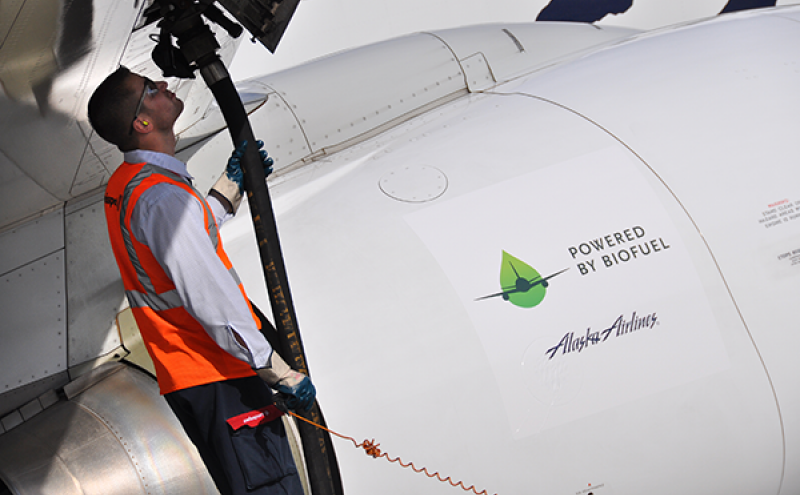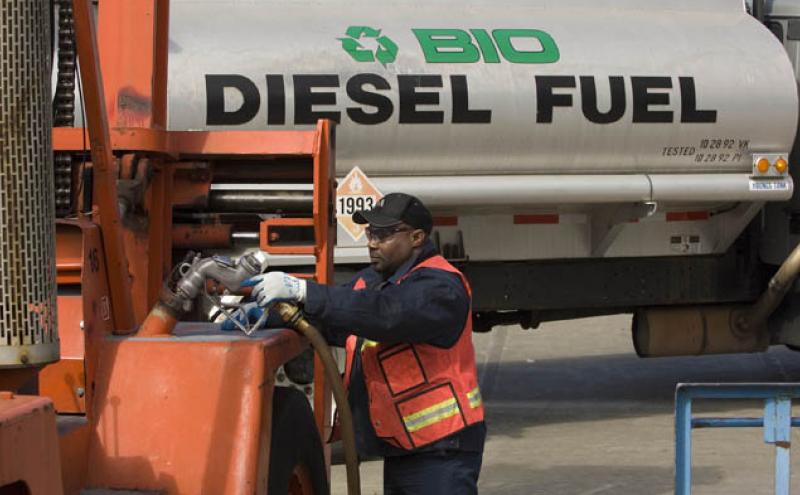
The Port of Seattle was the first United States airport operator to set a specific timetable and goals for transitioning all airlines at SEA to commercially competitive sustainable aviation fuels. The first goal is to power every flight fueled at SEA with at least a 10% blend of sustainable aviation fuel (SAF) by 2028.
What is Sustainable Aviation Fuel (SAF)?
- A jet fuel made from renewable or waste-derived sources such as used cooking oil, wood waste, municipal solid waste, renewable electricity, etc.
- A fuel that can range in its renewable content and has been certified to the same safety standards and used in the same fueling systems and aircraft as petroleum Jet-A.
What are the Benefits of SAF?
- SAF reduces lifecycle carbon dioxide emissions by 50-80% compared to fossil fuel.
- The materials used to make SAF are made from recycled carbon instead of fossil carbon, and don’t put new sources of carbon into our atmosphere
- SAF reduces sulfur emissions, soot, and ultra-fine particulates. All of which are associated with adverse human health impacts.
- Creates clean energy jobs throughout our state
What role can the Port of Seattle play to bring SAF to SEA?
The Port of Seattle is a leader in supporting the research and development of sustainable aviation fuels (SAF). Over the last decade, the Port has played a market development role by exploring infrastructure development and demand planning at SEA Airport. In December 2017, the Port passed a motion that contains specific SAF goals and directed staff to create the SEA Airport SAF Strategic Plan.
Currently, SEA Airport dispenses approximately 600 million gallons of jet fuel per year, and this amount is likely to grow to between 700 and 800 million gallons in the next decade. The Port's goals are ambitious and aim for an aggressive transition to SAF. The first milestone is set for 2028, when 10% of jet fuel available at SEA Airport will be produced locally from sustainable sources. By 2050, the maximum blend currently approved for jet fuel will be produced locally from sustainable sources.
To achieve our SAF goals, we actively:
- Support local, state, and federal policies that promote SAF use, financing, and production.
- Facilitate collaboration among advocates, businesses, producers, and officials to raise awareness and identify opportunities.
Within the last few years, several important initiatives and policies have taken off with help from the Port’s advocacy efforts and commitment to advancing SAF production and adoptions:
- Washington State SAF Price Incentive: In 2023, Washington state passed new legislation that creates policy and per-gallon price incentives for the production and use of SAF in Washington. The new law creates a per-gallon incentive for SAF with lifecycle greenhouse gas (GHG) emissions that are at least 50 percent lower than traditional jet fuel. The incentive increases for each one percent reduction in lifecycle GHG beyond 50 percent, up to a potential incentive of $2 per gallon.
- Clean Fuel Standard: In 2021, Washington state passed a Clean Fuel Standard, similar to programs in place in California, Oregon, and British Columbia. SAF generates credits under the program as an “opt-in” fuel, which lowers the cost and helps make it more cost-competitive with petroleum jet fuel when layered with other incentives.
Research and Reports
|
Municipal Solid Waste-to-SAF Techno-Economic Study (2023) Port of Seattle and King County conducted a study to explore the feasibility of SAF production from municipal solid waste (MSW) in the region. The study found that there is enough waste going to very large landfills in the region to support one or more SAF production facilities, but smaller landfill volumes are not economically feasible. Read the report summary. |
|
|
Potential Northwest Regional Feedstock and Production of Sustainable Aviation Fuel Report (2020) Washington State University evaluated the availability of regional feedstocks to meet the Port’s SAF goal. The report found that there are sufficient waste sources (woody debris, municipal solid waste) and several technology options to convert the sources into SAF and exceed the Port’s goal. |
|
|
Port of Seattle Sustainable Aviation Fuel Strategic Plan (2018) In partnership with airlines, the Port developed a strategic plan to meet the SAF goals. The strategic plan was adopted by the Port’s Commission in 2018. |
|
|
Innovative Funding for Sustainable Aviation Fuel at U.S. Airports Report (2017) Rocky Mountain Institute and SkyNRG investigated the feasibility of using different airport revenue streams at SEA to help bring down the cost of SAF, and support the build-out of fueling infrastructure. The report identified a range of funding sources, and included ways an airport could be involved without directly paying for fuel. |
|
|
Aviation Biofuels Infrastructure Feasibility Study (2016) Port joined with Boeing and Alaska Airlines to investigate the best locations to store and blend SAF into the airport’s fueling systems. The report identified some key locations on and off the airport’s property. |



